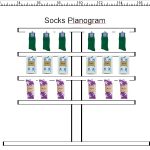What happened to government regulation in the aftermath of the oil shock of 1973?
What happened to government regulation in the aftermath of the oil shock of 1973?
In 1973, the Organization of Petroleum Exporting Countries (OPEC) had refused to export the petroleum supplies to the United States and its allies because of the conflict with Egypt. This step brings negative effects for the economy of the European Union and the oil stock of government regulations. Oil crisis has increased the economic complication and increase the rate of inflation. According to the policy makers, the o oil crisis brings the cost-push inflation in the economy, for example, the increase in wage rate of workers. The US government followed different desperate measure to overcome the negative effects of oil crisis.
Answer 2
The world oil shock of 1973 began in eastern on October 17, 1973, when Arab members of the Organization of Petroleum Exporting Countries (OPEC), in the midst of the Yom Kippur War, announced that they would no longer ship petroleum to nations that had supported Israel in its conflict with Egypt—that is, to the United States and its allies in Western Europe. Since by this oil stock the government previous regulation were badly affected, hence a government regulation Q “ had put a celling on the interest rates banks could pay on savings and checking accounts. That artificial limited the interest rates small depositors could get :if bank wanted to offer a high interest rate on its saving accounts, it wasn’t allowed to so. And also , oil crisis served to further complicate the macroeconomic environment, particularly in regard to inflation. The intellectual consensus among policymakers at the time was that cost-push inflation (the type of inflation arising from an increase in the prices of inputs to the economy, i.e., worker wages).





